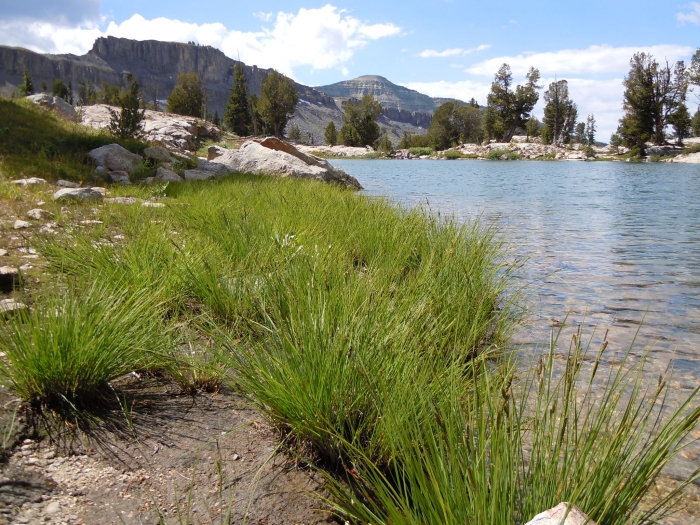Kellogg’s Sedge
(Carex kelloggii)
Kellogg’s Sedge (Carex kelloggii)
/
/

Matt Lavin
CC BY 4.0
Image By:
Matt Lavin
Recorded By:
Copyright:
CC BY 4.0
Copyright Notice:
Photo by: Matt Lavin | License Type: CC BY 4.0 | License URL: http://creativecommons.org/licenses/by/4.0/ | Rights Holder: Matt Lavin | Publisher: iNaturalist | Date Created: 2010-09-04T12:36:10-07:00 |






















Estimated Native Range
Summary
Carex kelloggii, commonly known as Kellogg’s Sedge, is a perennial herbaceous plant native to wetlands, moist meadows, and forest openings throughout Western North America, including California, Oregon, and Washington. It is particularly adapted to clay soils, often in areas with seasonal flooding. Kellogg’s Sedge typically grows at a moderate rate to a height of 1.5-2.5 feet (0.46-0.76 meters) and a width of 1-1.5 feet (0.3-0.46 meters). The plant features narrow, grass-like leaves and bears green, inconspicuous flowers that bloom in the spring, followed by small, brown seed capsules.
Kellogg’s Sedge is valued for its ability to thrive in wet conditions and is often used in rain gardens, bioswales, and as a ground cover in moist, shaded areas. It provides erosion control and habitat for wildlife. This sedge is low maintenance, requiring medium amounts of water once established, and tolerates a range of light conditions from full sun to part shade. It prefers medium draining clay or loam soils. While generally disease-free, it can suffer from root rot if planted in overly dry conditions. Kellogg’s Sedge is not known for aggressive roots or significant pest problems. It is not typically invasive when grown outside its native range, but gardeners should always monitor local guidelines and recommendations.CC BY-SA 4.0
Kellogg’s Sedge is valued for its ability to thrive in wet conditions and is often used in rain gardens, bioswales, and as a ground cover in moist, shaded areas. It provides erosion control and habitat for wildlife. This sedge is low maintenance, requiring medium amounts of water once established, and tolerates a range of light conditions from full sun to part shade. It prefers medium draining clay or loam soils. While generally disease-free, it can suffer from root rot if planted in overly dry conditions. Kellogg’s Sedge is not known for aggressive roots or significant pest problems. It is not typically invasive when grown outside its native range, but gardeners should always monitor local guidelines and recommendations.CC BY-SA 4.0
Plant Description
- Plant Type: Grass
- Height: 1.5-2.5 feet
- Width: 1-1.5 feet
- Growth Rate: Moderate
- Flower Color: N/A
- Flowering Season: Spring
- Leaf Retention: Evergreen
Growth Requirements
- Sun: Full Sun, Part Shade
- Water: Medium
- Drainage: Medium
Common Uses
Bird Garden, Low Maintenance, Water Garden
Natural Habitat
Wetlands, moist meadows, and forest openings in Western North America, particularly adapted to clay soils with seasonal flooding
Other Names
Common Names: Sedge
Scientific Names: , Carex kelloggii,
GBIF Accepted Name: